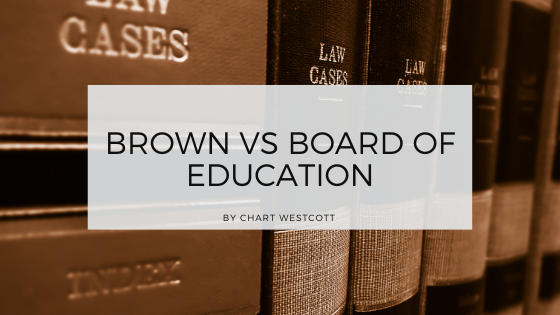Brown V Board of Education of Topeka, was a landmark Supreme Court case in which the Court ruled unanimously that racial segregation in schools is illegal. It was one of the most pivotal cornerstones of the civil rights movement.
In a previous case, Plessy v Fergeson, 1896 Supreme Court ruled that segregation of public facilities is legal as long as the facilities are equal. That ruling made it constitutionally permissible to barr African-Americans from sharing public spaces with their white counterparts.
By the 1950’s the National Association for the Advancement of Colored People, aka the NAACP, was fighting for better treatment of African Americans. They were working hard to challenge segregation laws in public schools.
In a case that would be forever remembered by history, Oliver Brown filed a lawsuit against the Topeka board of education. The school did now allow his daughter Linda into their all-white elementary school.
In Brown’s lawsuit, he claimed that schos for black children were not equal to schools for white children. He pointed out the segregation violated the so-called separate but equal clause of the 14th amendment. The case originally went to the U.S District Court of Kansas, but did agree that public segregation has “ a detrimental effect upon the colored children”, but still upheld the separate but equal clause.
Brown’s case and four other similar cases came before the Supreme Court in 1952. The Court combined them into the single landmark case, Brown V Board of Education of Topeka. At first, the Court was divided on the decision. After the death and replacement of one of the judges, the scales began to tip in favor of Brown. In the issued decision on May 17, 1954, Warren wrote that “in the field of public education the doctrine of ‘separate but equal’ has no place,” as segregated schools are “inherently unequal.” The Court decided that the plaintiffs were being “deprived of the equal protection of the laws guaranteed by the 14th Amendment.”
In the landmark decision, segregation in schools was deemed unconstitutional, setting the dominoes of the civil rights movement even more into motion.
